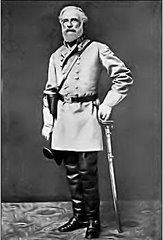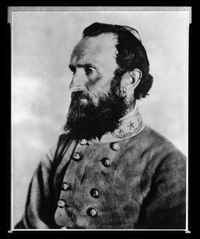This is for a school paper in Ancient Civilizations & Literature. It is on the true faith and character of Abraham.
The Character of Abraham
Ryan Hampton
December 2, 2007
Throughout history, God has always preserved His people, and He does so through ordinary, faithful men and women. God’s people are those who fear His name, who trust in Him, and call upon His name. The City of God are comprised not of those who are good in and of themselves, but those who realize they are sinful, and wait upon eternal glory, a new creation, and everlasting community with God and others. This principle sets God’s Kingdom apart from other false kingdoms.
One such faithful member of God’s covenant people is a man by the name of Abraham, or originally, Abram. Abram was an ordinary man, but a faithful man. Abram trusted in God. Abram has been considered one of the heroes of the faith. God made a covenant with Abram that has lasting effects even to this day. Abram was one of the patriarchs of Genesis. To support the case for this man’s character toward God, let facts be submitted to a candid world, outlying his faith, love, and commitment to God.
The story of Abram is recorded for us in the book of Genesis in chapters 12-25. The story begins with God just telling Abram to “leave.” Leave! Leave everything he had. His land, the place where he was raised, and his possessions. But God wanted to make something new in Abram. “I will make you a great nation; I will bless you and make your name great…” said the Lord to Abram. He promised to curse those who curse him, and bless those who bless him. God entered into covenant with Abram, and Abram followed God. The Bible says that Abram simply followed God. He left his land at the age of seventy-five.
God had told Abram to move West, which is actually more significant than many people may realize. Throughout the Bible, we see “going West” as a sign of goodness, or Holy progression. “Going East” is a sign of sinfulness or moving away from God. This is a sign already that Abram is a man of God. Abram was moving West, and moving closer to God. God wanted to make something new out of Abram. Would Abram continue to respond with the love and fear of the Lord, or would his faith and patience wear thin?
Being that the story of Abram is recorded in fourteen straight chapters in the Bible, and is mentioned in many other places in the Scriptures, we should know that this is a long story, requiring much faith and patience from Abram. God gave Abram great promise. He told Abram that he would find a land, and his descendents would inherit the land. Those who blessed Abram’s name would be blessed, and those who cursed his name would be cursed. On one hand, it would seem good for Abram to do what God said.
But many crises came into Abram’s journey. As Abram was wandering toward his promised land, he passed through the land of Egypt. At this time, there was a famine in the land, so Abram dwelt in Egypt, while the famine was severe. This must have been another problem and crises for Abram, and yet another chance for him to lose his faith.
And according to some Christian scholars, it was about this time that Abram did lose his faith – or at least part of it. Abram saw that Sarai was still beatiful. He knew based on the custom of the day, that the Egyptians would see Sarai, want to take her, and kill Abram, assuming Abram was her husband. It seemed as if Abram could not stay out of trouble. Isn’t God too gracious to allow Abram to go through this? Abram must have thought these things. Abram then asked Sarai if they could deceive the Egyptians, to tell them that Abram and Sarai were brother and sister. This would save Abram’s life, and Sarai could remain his wife. “I do not want to die, with all my promised possessions, and I also do not want anyone to take my wife,” Abram must have thought. Abram and Sarai did fool the Egyptians, and even despite further frustration, Abram and Sarai were saved. Many fault Abram for this, but one that does not fault Abram is the Bible. The Bible never faults Abram. Abram consulted first with his wife (12:13), and saved himself and his relationship with Sarai. Abram handled this in a God-fearing way, especially given all the troubles he was going through.
But as Abram continued on his journey, he and Sarai grew old. This seemed odd. God already promised them descendents (12:7). How could they have descendents? What could the Lord mean? They were too old. Abram must have wondered these things.
But then God came to Abram and reassured him that he would have a son. “A son, for me and Sarai, even in our old age. How could that be?” That must have been Abram’s reaction. But even in his questions, Abram still continued on in faith and patience. After each question, Abram always answered it in light of the grace and power of God. But as time wore on, Abram must have lost patience. God had entered into covenant with Abram, and already promised him a son and land to his inheritance. But God’s time schedule was a lot different than Abram’s. Would Abram continue to follow God?
Abram did give in one time. After Abram had been in the land of promise, Canaan, for ten years, Sarai had arranged for Hagar, Abram and Sarai’s maidservant, to sleep with Abram and conceive a child. Abram in hearing of this did not object. He followed and he failed. Hagar conceived and had Ishmael. This reminds of the Garden of Eden, where Adam and Eve committed the first sin. Both the husband and wife each sinned. Eve ate the forbidden fruit in the Garden, but Adam did not teach Eve well enough not to eat of the fruit. Then, he ate the fruit himself. Adam failed as a leader, teacher, and husband. Eve failed as a follower, a listener, and as a wife. She ate the fruit, and she did not give thanks to God. If she was in question, she should have at least consulted with her husband, Adam. Adam was present watching Eve eat the fruit, and failed to intervene and prevent what God forbid.
This is similar to the case of Abram and Sarai. Sarai failed to consult with her husband and reassure him to have faith and patience in the Lord. Abram failed to teach Sarai to have faith and patience in God. Sarai went on her own initiative to bring Hagar to Abram to have the child of promise. In reality, this was not the child of promise. Abram after failing as a leader, agreed, and slept with Hagar, and she conceived. Then she had Ishmael. Adam and Abram both followed something, but did not follow God.
This makes Abram like another Adam. Once again, this Adam sins. This shows us that we still need a much greater Adam. But this does not mean that God can not still use Abram. God desires to work through his sin, making him new. God still wants to send the promised son, and to elevate Abram as a Father, and his promised son, to once again, point us to the ultimate New Adam.
With this in mind, we see that Abram sinning does not cancel out God’s plan. In some respects, it fulfills it even the more. But we still must hold Abram accountable, and we still must remember that continuous sins by Abram may prevent the covenant from being fulfilled – not by God’s unrighteousness, but by Abram’s. Once again, we are faced with the question – how will Abram respond? Will it be in the fear of the Lord, or in rebellion?
We saw at the beginning that God’s people – the City of God – are not those who are good in and of themselves, but those who seek God in recognizing their sin. Abram recognized his sin, and sought after the forgiveness of the Lord. Abram was righteous, and perhaps learned from his sin. The effects of his sin still exists today, but so does his faithfulness.
God continued to lead Abram to the Land of Promise, and Abram continued to follow God. Abram submitted to God’s time and plan, and not to his own. Abram did not say he would worship God only if God followed Abram’s time plan. Rather Abram followed God’s time plan, and worshipped Him no matter what it was. Living this way always works good. We are reminded of this in the book of Romans. Romans 8:28 says, “We know that all things work together for good for those who love God and are called according to His purpose.” Abram followed God, and as we shall see, “All things work together for good.”
These things worked together for good in a two-fold relationship. This two-fold relationship was centered around God’s love and mercy toward Abram, and Abram’s love and fear of God. God first loved Abram, and Abram loved God because of God’s love. 1 John 4:19 says that “We love Him [God] because He first loved us.” Abram’s love for God only came by first the Love of God. Without God’s Love, Abram would not have loved God or other people. But this relationship goes further than this. God’s continued mercy comes from Abram’s faith in the Lord. God does not forget His end of the covenant, but a covenant is incomplete without man’s responsibilities upheld. Abram responded to God’s Love with faithful obedience and patience. God continued to show mercy to Abram.
So after many years of suffering, God led Abram to the promised land and gave Abram the promised son, Isaac. This was the sign of the covenant. The descendents of Isaac and the descendents of Ishmael are enemies to this day. This reminds us that good and evil are always enemies. Then we read in chapter seventeen that God changed the name of Abram to Abraham. The name Abraham means “A Father of many nations.” Abram was no longer. For now Abraham, a Father of many nations, had come in. God also changed Sarai’s name to Sarah. This shows us more of God’s covenant. A covenant is shown by five steps. God first presents Himself. God then separates, in order to make something new. God then speaks, giving a new order, making new what was to be made new. Fourth, God gives a sign and seal of the covenant. Fifth, God prepares for the future. In the story, we see this played out with Abraham. God made Himself known to Abraham, then Abram. God told Abram to leave. This is the second step. In leaving, Abram was divided from his home, all in order for God to make something new. Then God spoke to Abram, telling Him the new respective roles. Abram would be a Father of many nations. By the same token, God gives a sign to Abram by changing his name to Abraham, which means “Father of many nations.” All that is left now is for God to prepare for the future. God does so by sending the promised son, Isaac. Now, Abraham is not so much an Adam, but something newer. He now must be a Father. The covenant is fulfilled it seems, but there is still something missing. Abraham faithful by sojourning through lands to find the promise land. But he must have a real “Fatherhood” test. Will he once again follow God under the new order, or would he go to childish and selfish ways. Would he love his son, Isaac, to the point of selfishness and idolatry, or would he love him only in light of the grace of God, remembering he is God’s gift, and placing God even before his pride possession of his son Isaac?
As God put Abraham in tests while he was yet Abram, so he would put him in a test now as a Father. God told Abraham to offer his son Isaac as a sacrifice. Abraham was most certainly confused, but still followed God, as did Isaac. Abraham took Isaac to a mountain to offer him up to the Lord. But the Lord intervened, and saved Isaac but sending an angel. This points us to Jesus again. Abraham was not perfect, nor was Isaac. This would not be worthy to save God’s people. But God gave us a sign of the faith it takes to follow God, and Abraham proved matured and faithful. Perhaps Isaac’s death shows Abraham’s maturity and forgiveness for sleeping with Hagar, as if points us to Christ dying for our sins in Adam. Only Jesus could fulfill the new covenant, but Isaac was now a picture and typology of the promised Son to come. Isaac would later be put through more tests, and would have to prove himself as a Father to his sons. But that is a different story.
Abraham lived faithful until his death. There is plenty we can learn from the story of Abraham. We learn about a faithful man, who placed his moral character rooted in God. We see a man who loved God, and walked according to His ways against insurmountable odds. Hebrews 11, known as the “hall of fame of faith,” mentions Abraham and his faith. It reads “By faith Abraham obeyed when he was called to go out to the place which he would receive as an inheritance. And he went out not knowing where he was going. By faith he dwelt in the land of promise as in a foreign country, dwelling in tents with Isaac and Jacob, the heirs with him of the same promise; for he waited for the city which has foundations, whose builder and maker is God” (vv 8-10). God is good by giving us a model for which we are to live by. He gives us the ultimate model in Jesus, but He also gives us models of sinners, who continued to live in faith. We can learn that God’s people, even the greatest and most recognized of Saints, are still imperfect humans and sinners. This separates Christianity from other religions. Abraham was a sinner, but he is a prime example of the Christian faith. We also see that good and evil are enemies. Moreover, we see that good always wins. Both the descendents of Isaac and Ishmael exist well in this world today, but Ishmael has no original stories. Isaac’s line is a story of God’s blessing. It has a name, and will continue crush the serpent’s head. We can learn a lot of theology of covenants and typologies from the story of Abraham. But this theology is not separate from the moral character we see in Abraham. If Abraham had not followed God, and if he would not have had patience in the Lord, then the covenant would not have been fulfilled. The typology to Christ would have been inadequate, except to see how not to react to God’s callings. We see these stories in the Scripture as well, but the story of Abraham is about a faithful man who put his trust in God, and is a great example to Christians everywhere today. Abraham put his trust in God, and may we do the same.
What do you think?
God bless the church
December 2, 2007
Ryan Hampton
Subscribe to:
Post Comments (Atom)










No comments:
Post a Comment